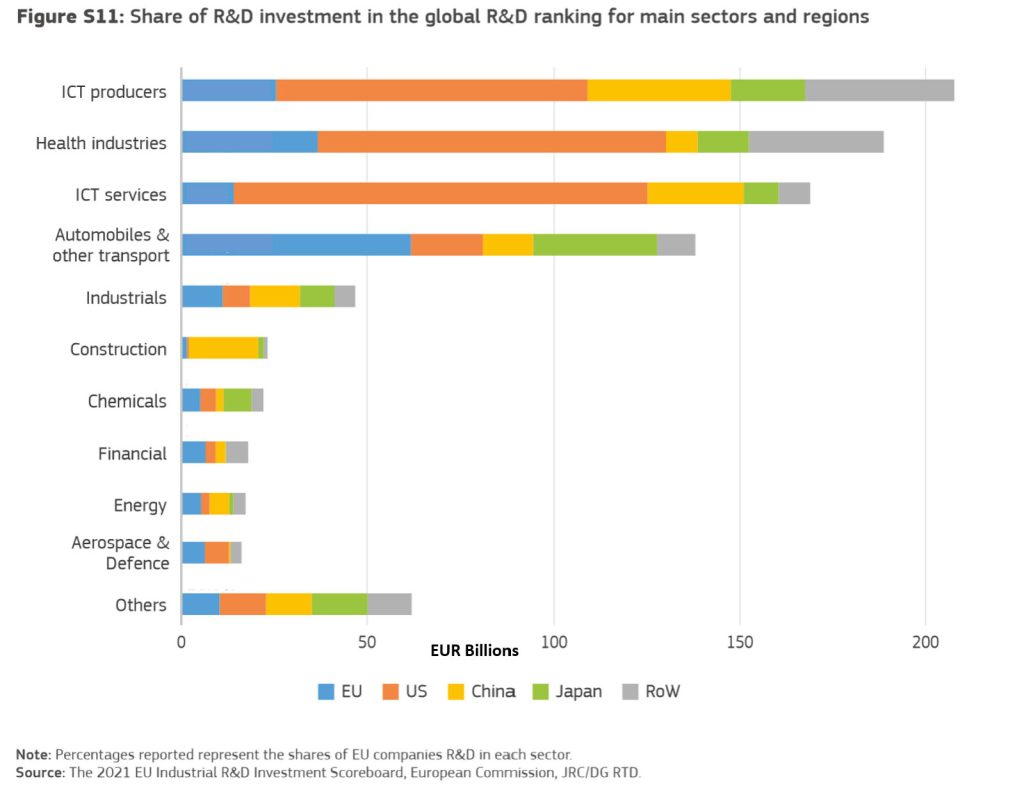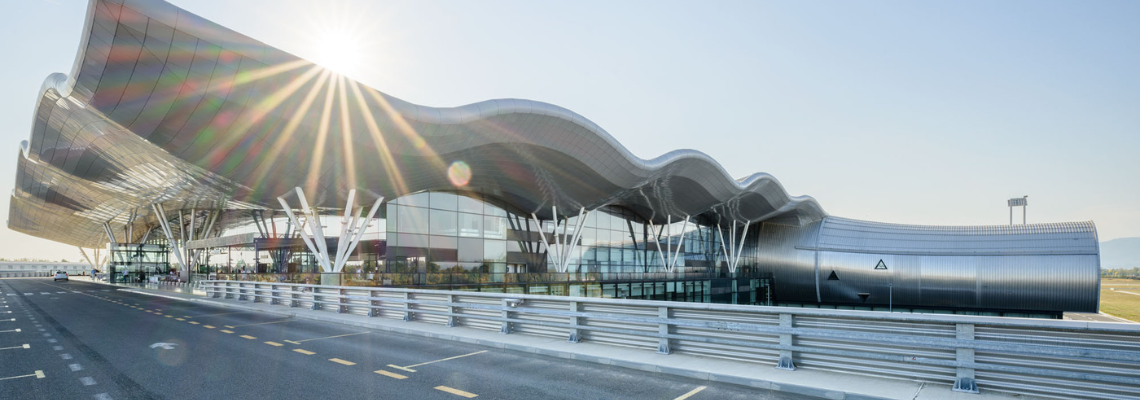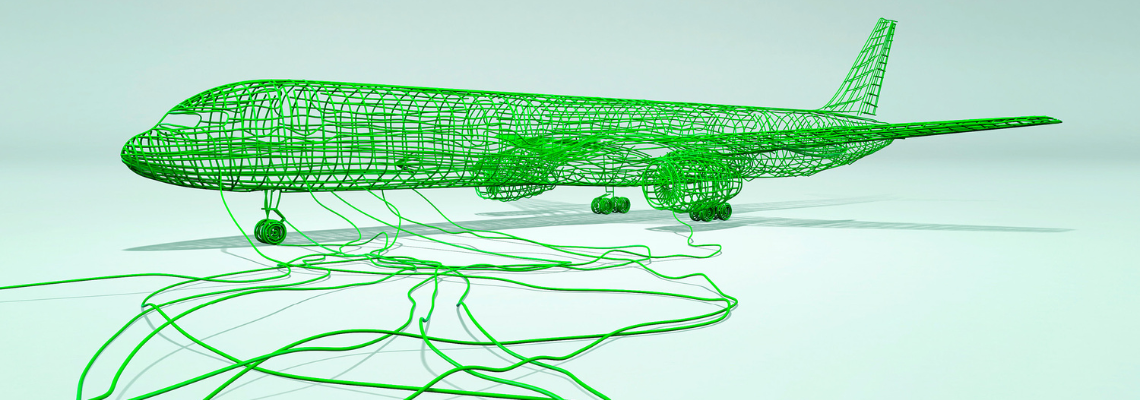Can AI make airport operations greener?

EMMA’s AI-driven platform optimizes airport operations, reducing costs and emissions while enhancing efficiency.
EMMA Systems, an incubated at Qatar Science Technology Park (QSTP), is leveraging AI to transform a wide range of airport operations. By streamlining communication and decision-making processes, EMMA empowers airports to achieve significant efficiency improvements, reduce delays, and decrease their environmental footprint. With its rapid growth and global expansion plans, EMMA Systems aims to shape the future of air travel.
QSTP is focused on accelerating the establishment and growth of promising tech start-ups through rapid incorporation in the QSTP Free Zone, collaborative co-working space, business facilitation, and support services which include access to a network of mentors, access to funding programs, training, and prototyping facilities. EMMA Systems’ founders also attended Plug and Play GOAL (Global Overseas Acceleration & Learning) in Silicon Valley, as part of the QSTP ELV8 program. As a result, EMMA Systems will be able to receive mentoring and an opportunity to grow its US clientele.


In today’s world, where air travel faces mounting concerns over its environmental impact, an increasing number of passengers are experiencing “flygskam” or “shame about flying”. Around the world, many travelers have expressed their concerns and their willingness to pay for carbon-neutral flights. In response to this demand for green travel, EMMA Systems has emerged as an innovative, AI-enabled solution that optimizes airport operations and monitors performance, resulting in substantial time and cost savings while significantly reducing CO2 emissions. The company was founded by Wisam Costandi, serving as Co-Founder and CEO, and Mohammad Hourani, who holds the position of Co-Founder and COO. Their expertise and vision drive the innovation and sustainable practices at the core of EMMA Systems.
“80 percent of the world has never flown. This means that there will be tremendous growth in aviation as air travel becomes more accessible to the world, and the amazing post-Covid recovery has accelerated this. We need innovative solutions quickly to ensure sustainable growth. At EMMA Systems, our AI software platform optimizes airport operations to get more flights in the air efficiently while minimizing the CO2 footprint,” says Costandi.
Within less than two years since its inception, EMMA Systems has already established connections with 70 airports and is actively engaged at four locations in Europe and the Middle East, with expansion plans for Asia and the Americas on the horizon.
The aviation industry suffers from a lack of efficient communication among airports, airlines, air traffic controllers (ATC), and ground handlers, leading to time losses and suboptimal processes. These inefficiencies translate into higher costs, revenue losses, increased airport capacity requirements, unnecessary delays, and a larger environmental footprint for the industry as a whole. As airports and airlines face the challenge of a dramatic recovery from the COVID-19 pandemic, the need to collaborate and rethink operations has become more critical than ever, according to Costandi, “For short-haul flights, a whopping 25 percent of CO2 emissions of the flight plan happen during taxing, take-off, and landing. If we could reduce taxi time by just 1 minute of every single flight across the globe, we would reduce CO2 emissions by 2.5 billion tons annually.”
EMMA Systems introduces a powerful AI-driven Collaborative Decision-Making platform with a cutting-edge user interface designed specifically for airport operators. EMMA incorporates industry processes, including Airport Collaborative Decision Making (A-CDM), allowing airports to gain a comprehensive view of all their activities. By collecting input from each stakeholder and providing real-time access to connected users, EMMA empowers decision-makers to make informed choices that enhance efficiency and optimize operational procedures.
Traditional airport systems often suffer from outdated and fragmented architectures. EMMA Systems tackles this challenge by ensuring that all data points are interpreted and used uniformly, enabling stakeholders to understand and use the information effectively. This uniformity promotes serious efficiency improvements across all levels of airport operations.
Inefficient communication remains a primary cause of continuous delays at airports. EMMA streamlines communication channels and helps to eliminate misunderstandings that result from misinterpreted messages. By fostering streamlined operations, EMMA minimizes delays and maximizes efficiency, benefitting everyone involved, including passengers.
Another critical aspect of airport operations is predictability and forecasting, which directly impacts air traffic management. EMMA’s AI platform brings order to the numerous data streams involved, providing a clear overview of what’s happening in real time. This enhanced predictability ensures smoother air traffic management and operational decision-making, eliminating the unpredictability that plagues the industry.

Private companies embarking on missions to reduce the aviation industry’s environmental impact and inefficiencies are one thing, but it needs to change from within, according to Costandi, though governments are beginning to step in, “Unfortunately, Aerospace and Defense have one of the lowest investments in R&D of any other industry meaning that this is a rapidly expanding sector that is in desperate need of innovation to be more ecologically efficient and meet the growing demands. Government regulation is also being implemented to offset and reduce CO2 emissions, such as the UN’s CORSIA program (Carbon Offsetting and Reduction Scheme for International Aviation), and governments have also started to implement their own regulation such as France banning all short-haul flights.”
With its commitment to advancing airport operations through AI-driven solutions, EMMA Systems is paving the way towards a more efficient, sustainable, and passenger-friendly future for air travel, but international pressure is needed.



